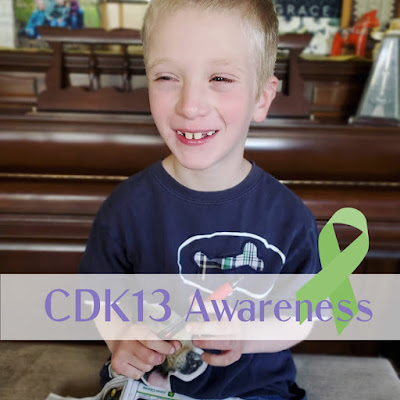2. Autistic people flap and rock.
Tuesday, November 1, 2022
10 Myths About Autism
2. Autistic people flap and rock.
Tuesday, October 18, 2022
A Gut Feeling: Raising a Child with a Genetic Disorder
I had that when I was expecting my third child. From the moment the second line appeared on the stick, I had a feeling that there was something unusual about the pregnancy, that there was a surprise waiting for me at the end of it. I didn't know what it was though. Maybe twins? No other possibilities came to mind and when I had my first ultrasound at 20 weeks, there was definitely only one baby. A little boy. The ultrasound technician printed a fuzzy black and white picture with the word "boy" superimposed on the picture and an arrow pointing to the proof. It didn't feel right, but it was hard to argue with that picture. Every time I started experiencing doubts, I pulled it out again and convinced myself that I had just been hoping for another little girl.
The ultrasound showed a healthy growing baby boy. No defects were noted.
The feeling didn't go away after we brough him home from the hospital. When he was less than 2 weeks old, he started to struggle to eat, and his breathing sounded very junky. He was hospitalized at 3 weeks for his breathing which is when they discovered he had a Patent Foramen Ovale or PFO heart murmur. But still, no one seemed concerned, so I kept my thoughts to myself. At 2 months of age, he was hospitalized for failure to thrive because he was losing weight rapidly and unable to eat more than about 8-10 ounces of milk in a 24-hour period. During that hospitalization, they ran test after test on him and multiple specialists came to check him out. The geneticists were intrigued by him and noted dysmorphic or unusual facial features along with developmental delays, which they said most likely meant he had a genetic disorder of some kind.
At 2 years of age, Davy was diagnosed with Ehlers Danlos Syndrome, a genetic disorder which it turned out all 3 of his siblings and I have as well. It explained a lot, but there were still things that didn't add up. Our geneticist was sure there was something else going on, and she was determined to get to the bottom of it. Finally, at the age of 7, a genetic test revealed that he had CDK13, a very rare genetic disorder. It explained everything from his hair type to his adorable little face with the button nose, to the eating difficulties he had as an infant.
I firmly believe that the gut feeling I had during my pregnancy with Davy came from God. While one can never be truly ready to raise a child with special needs, God did help me be prepared for that possibility before Davy was even born and seven years before receiving the CDK13 diagnosis.
Tuesday, October 11, 2022
A Glimpse Into the Future
I recently got a glimpse into my son's future.
Davy has CDK13, a rare genetic disorder that affects his development, speech, muscle tone, facial features, and more. It can also cause autism, which it does in Davy's case.
I was at the bookstore one day when a boy about 13 or 14 years old came in with his mom. He was loudly vocal about his dislike for books in general and instead selected several dvds, he told his mom she was slacking when he was ready to check out and she was not, he did not seem to realize that he was in the cashier's bubble when he leaned way over the counter, and he loudly asked her several questions about how many books and how many dvds the bookstore carried.
My first thought was that this kid was disrespectful and self-centered.
Then, I noticed that his speech was kind of unclear and "sloppy" for lack of better word. I also noticed how his mom stayed calm throughout the entire visit as she encouraged him to read the books they had at home if he didn't want any from the store and explained to him each step of what they were doing.
I realized that while there was a chance that this was a kid who just needed some discipline and to learn some social skills, there was also a good chance that this was a kid with special needs who was doing his best.
And then, I realized how much he reminded me of Davy. Davy doesn't hold back on his opinions. He has very clear likes and dislikes which he is sure to share with others. He expects others to operate on his timetable. He has no sense of personal space. He is interested in details of how things work and doesn't hold back from asking questions. We are constantly working on social skills and being courteous and respectful to others, but he will always struggle with these things.
As I watched the boy exit the bookstore, I realized that I had just seen a glimpse into Davy's future and it broke my heart. Davy is eight years old now. As he gets older, it's becoming more obvious that he isn't like most kids his age. Each birthday is bittersweet as they remind me of how far he's come, but also, just how much he struggles with things that come naturally for most kids his age. When people look at Davy now and as he grows up, will they see a spoiled child who needs some serious discipline or will they see a child who is doing his best, but struggling to process and respond to everyday things?
Please let this be your reminder to give people grace when you see them behaving "differently" in public. Many disabilities are invisible to others, but they're there just the same.




.png)





.jpg)

.png)



















